James Earl Jones, pre-eminent black stage actor of his generation and voice of Darth Vader
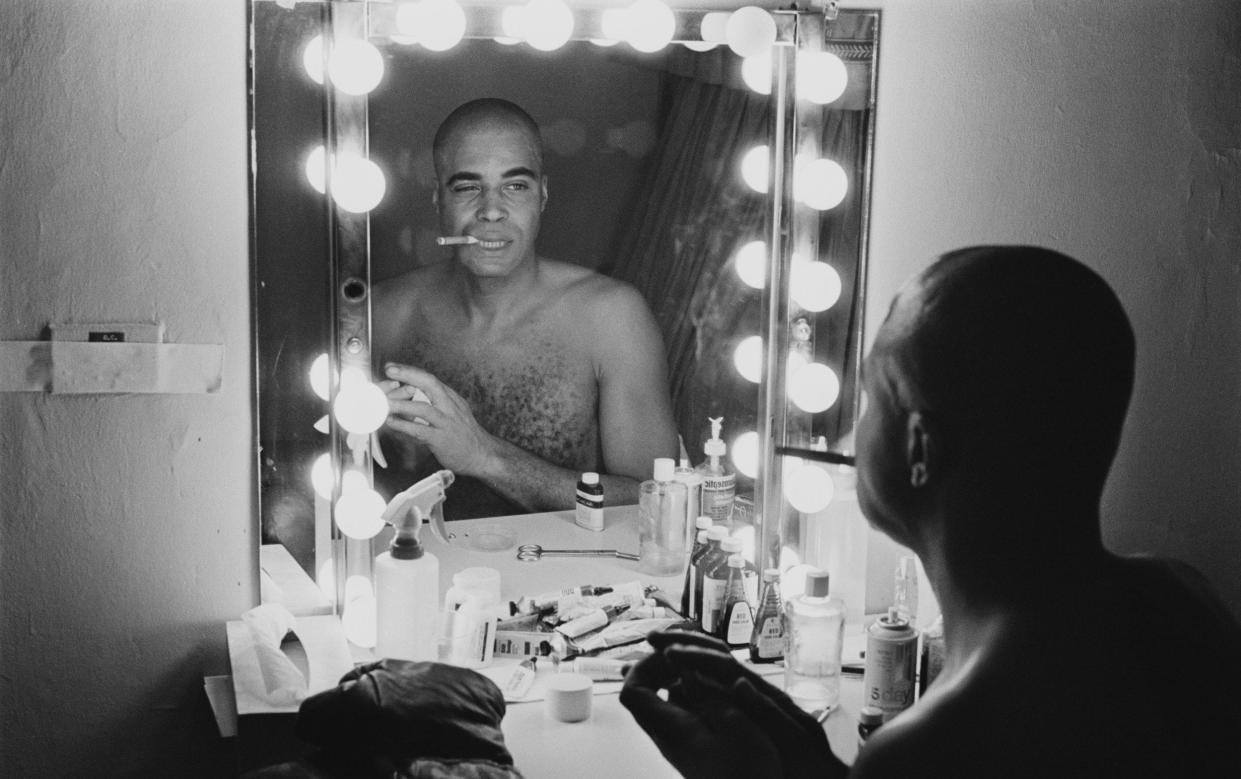
James Earl Jones, who has died aged 93, was hailed in the 1960s as the most exciting presence in the American theatre since Marlon Brando and became the pre-eminent black stage actor of his generation, but achieved his widest fame as the voice of Darth Vader in Star Wars.
Jones specialised in endowing his stage roles with an ineffable, if often sorely tested, nobility. But he had no interest in being a standard-bearer for the dignity of black people, as Sidney Poitier was in the cinema.
Where Poitier would not play Othello on the grounds that the Moor could be seen as a white man’s dupe, Jones could not resist the character’s complexities and played the part seven times. Theatrical lore had it that he was a serial romancer of his Desdemonas, but he insisted that he had only been involved with two of them – both of whom he married.
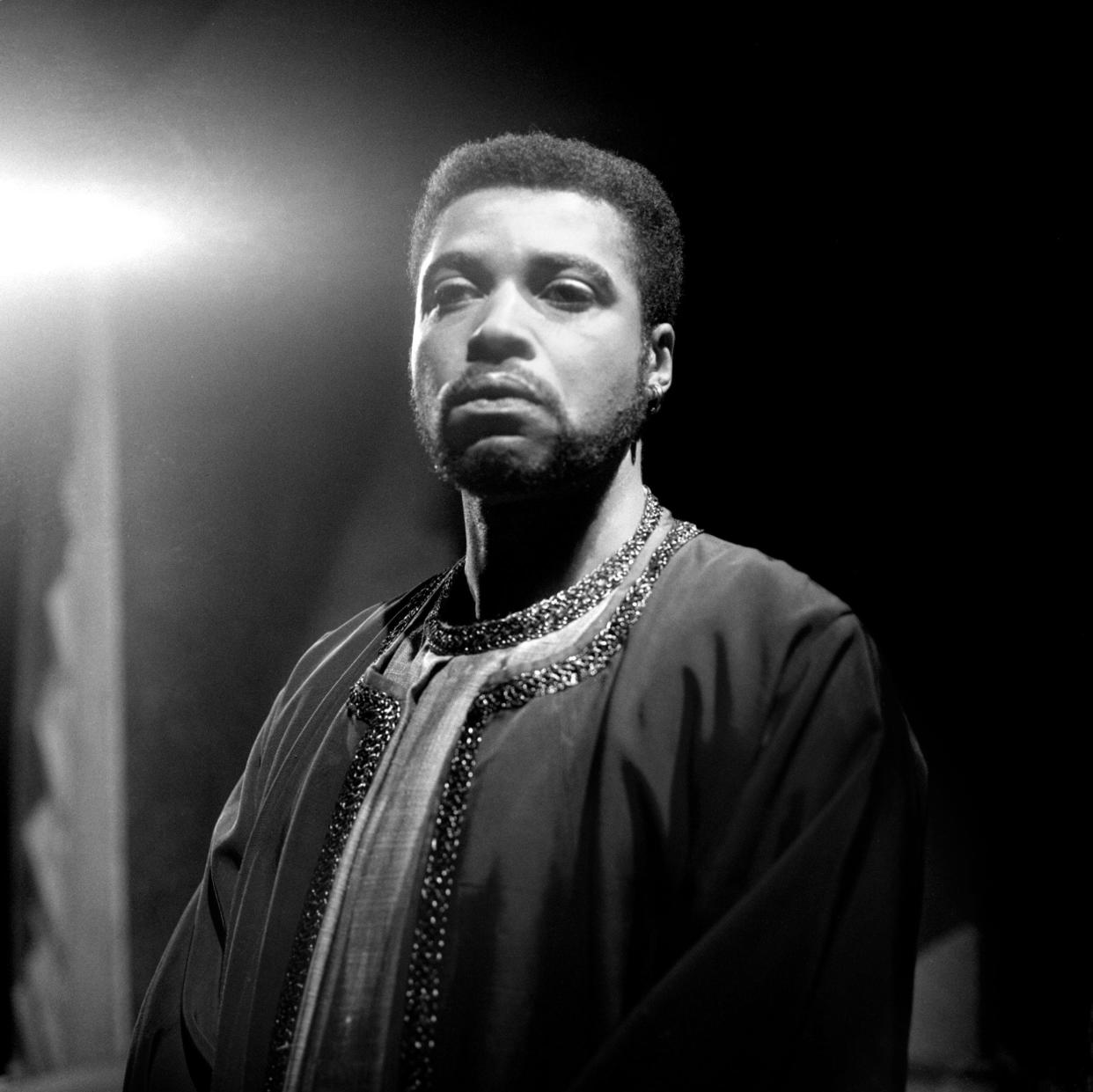
His breakthrough role came in 1967 in The Great White Hope (Arena Stage, Washington DC), Howard Sackler’s play based on the life of the boxer Jack Johnson. Those who knew the diffident, introspective Jones wondered if this flamboyant part would be beyond his range, but he triumphed, winning a Tony Award after the play transferred to Broadway.
“If anyone deserves to become that occasional thing, a star overnight, then Mr Jones deserves no less,” declared Clive Barnes in The New York Times, although after 14 years as a struggling actor, the 37-year-old Jones queried the “overnight”. He recreated the role for Martin Ritt’s film of 1970, but as with many of his films he disliked the result, although he was nominated for an Oscar.
He discussed his stage work in forensic detail in his autobiography Voices and Silences (1993) but devoted no more than two paragraphs to Star Wars; he seemed to be not so much resentful of the space epic’s dominance in his professional life as wilfully oblivious. He would never, as his co-star Sir Alec Guinness did, have told autograph-hunting children that they should stop watching Star Wars, but if they asked him to repeat his lines from the films he would admit that he had no recollection of them.
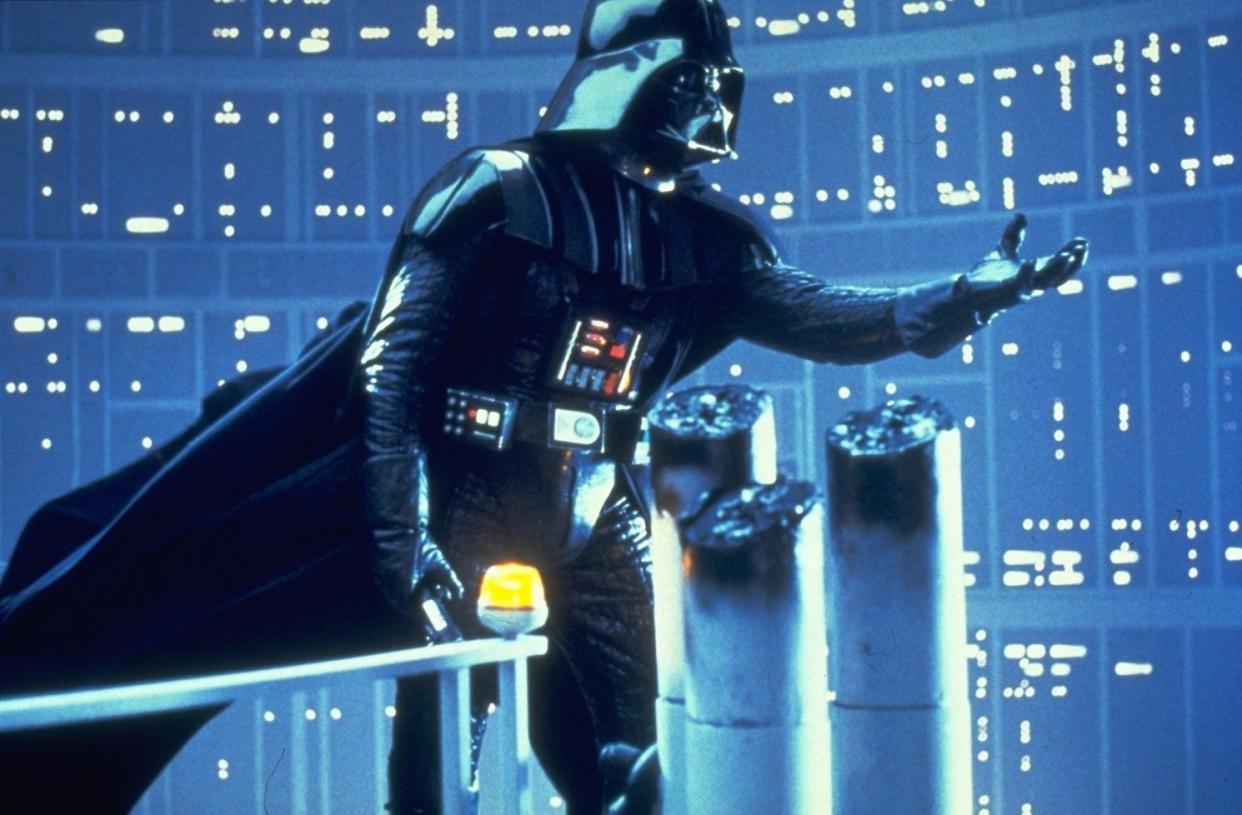
Darth Vader’s spacesuit, breathing mask and samurai helmet were inhabited by the English bodybuilder David Prowse, who was originally supposed to supply his voice as well. But the director George Lucas felt that Prowse’s marked West Country accent – the rest of the cast dubbed him “Darth Farmer” – did not quite suit the galaxy’s most evil villain.
Lucas decided Vader’s lines should be dubbed by a commanding bass. Jones’s basso profundo voice – “Deep, rumbling, august: it’s the sound Moses might have heard when addressed by God,” according to one critic – was perfect, less familiar than that of Orson Welles, who was also considered, but just as distinctive. His vocals were filtered through the sound of a scuba diver’s breathing regulator.
Jones was paid only $7,000 for his work on the first Star Wars film (1977), although Lucas doubled the fee when it looked like it might be a hit. He reprised the role in the sequels The Empire Strikes Back (1980) and Return of the Jedi (1983) and again when the Star Wars gravy train clanked back into life in the new millennium, in Revenge of the Sith (2005) and Rogue One (2016). He also voiced King Mufasa in the 1994 Disney animation The Lion King (a role turned down by Sean Connery), and again in the remake of 2019.
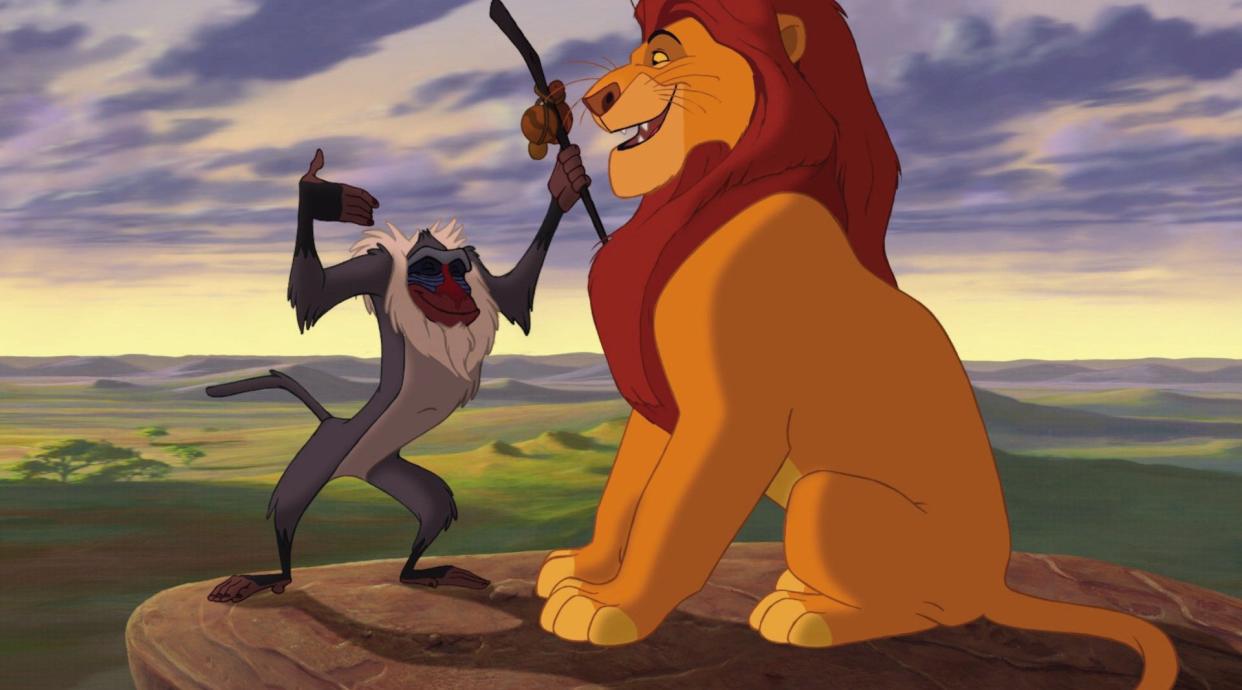
That his voice, which was in constant demand for documentaries and commercials, should have become his fortune was an irony on which Jones often reflected, as the stresses and privations of his childhood had left him with a pronounced stutter; indeed, for much of his boyhood he was functionally mute.
James Earl Jones was born at his maternal grandparents’ tenant farm in Arkabutla, Mississippi, on January 17 1931, in a four-bedroom farmhouse that already housed 11 other family members. His mother Ruth, née Connolly, had separated from her husband, Robert Earl Jones, before James was born; her family did not approve of Robert, a boxer and troubadour actor, and James would not meet his father until he was 21.
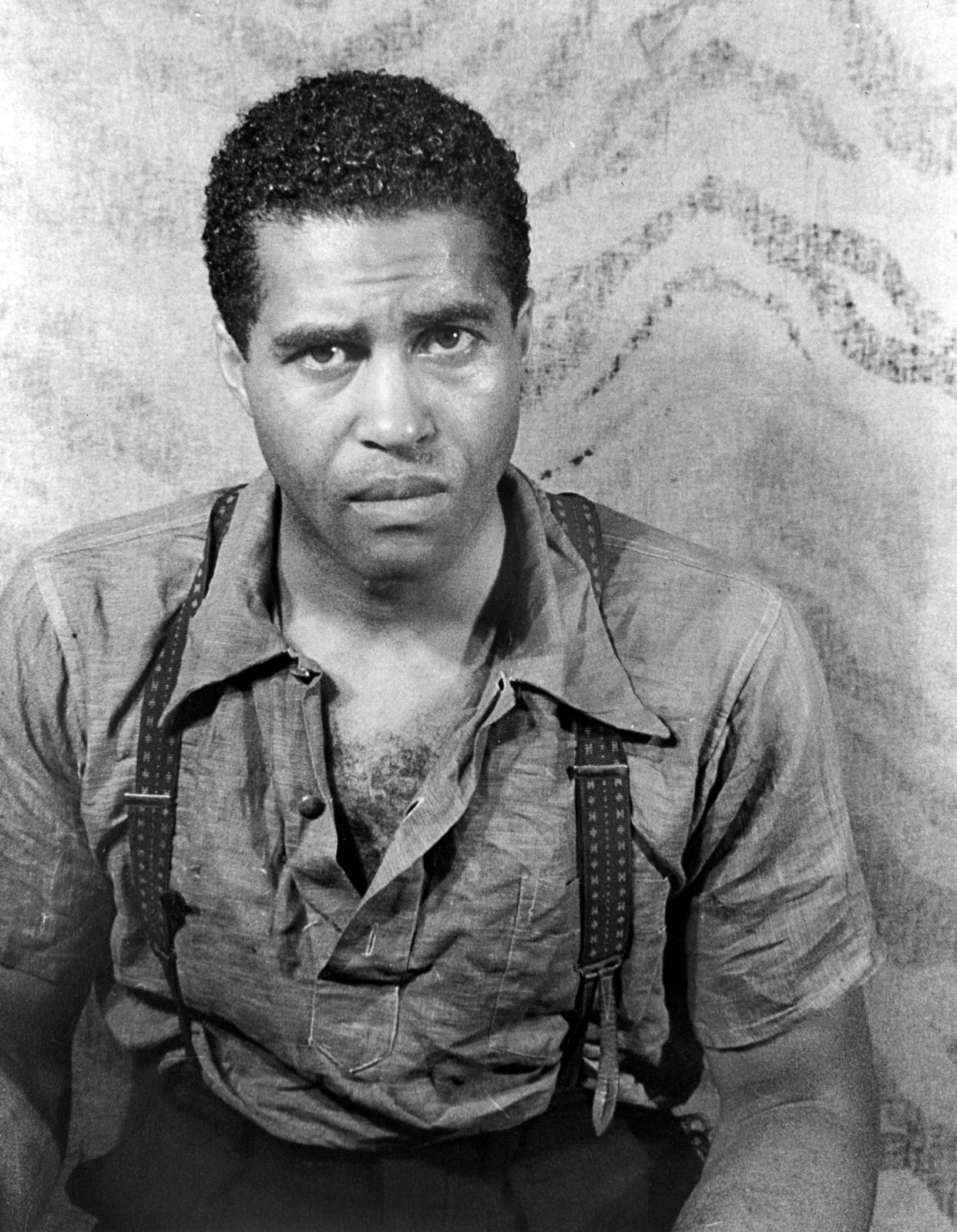
When he was small his mother left to live as a migrant worker in the Delta, and he was brought up by his grandparents, who between them had Irish, Cherokee and Choctaw as well as African ancestry. He took pride in his mixed heritage, something that later made him suspicious of the politics of racial identity – as did the excessive hatred of white people constantly expressed by his grandmother, “the most racist person I have ever known”.
The family moved to a new farm in Michigan when James was five, an upheaval that exacerbated his sense of displacement, and he began to stutter, an affliction so humiliating that within a year he had virtually stopped speaking altogether.
He was simply regarded as an oddity by his family and teachers until, at 14, he wrote a poem that impressed one master, who encouraged him to read it out loud; James was surprised to discover himself the possessor of a strong, deep voice. He developed his confidence by reading Shakespeare and Poe out loud in the classroom, and went on to be a star of school plays and debates.
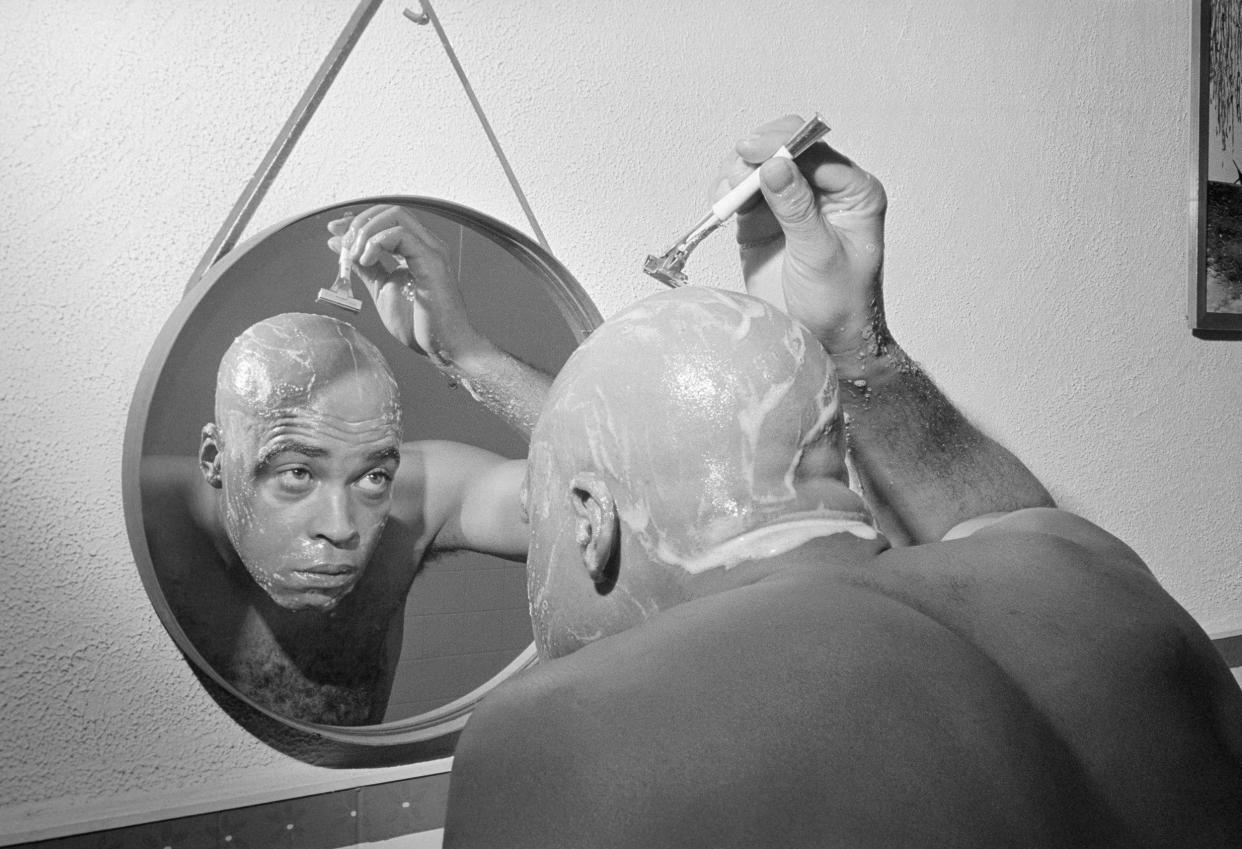
In the meantime James’s father Robert had become a well-known film actor, and when he saw a picture of him in a magazine, he announced his intention to become an actor, which earned him a clout from his grandfather.
Instead James went to study Medicine at the University of Michigan. But he intended to join the Army and firmly believed that he was destined to meet his end in Korea, so he switched to drama and in the end did not bother to take his degree.
In the event he got no further than Colorado before he was discharged, his commanding officer advising him that although he had the makings of a fine soldier he should not leave his ambition to be a professional actor untried.
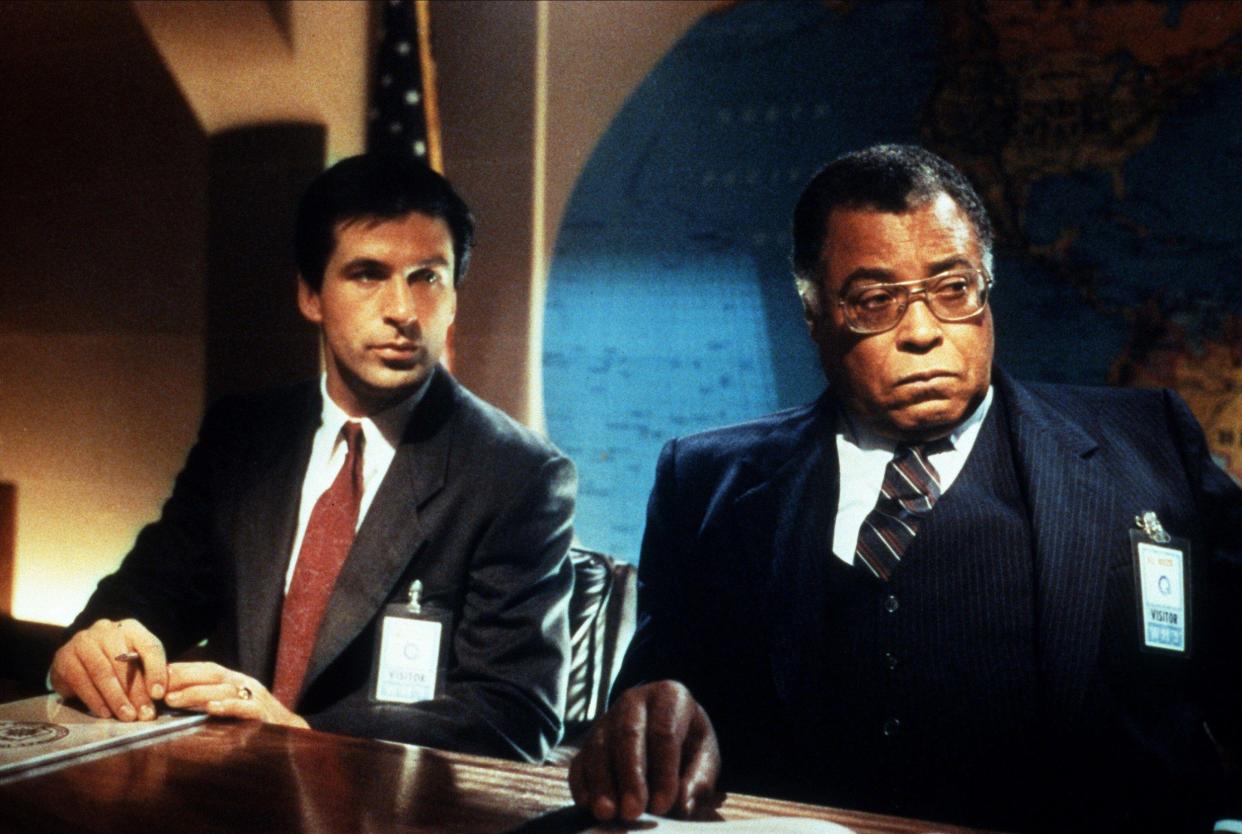
He moved to New York and stayed for a time with his father; they bonded over discussions of theatrical technique, and would eventually act together several times.
The GI Bill funded his studies at the American Theater Wing, and he also scraped together money to attend private classes run by Lee Strasberg. He was too shy to strike up a conversation with his classmate Marilyn Monroe.
He scratched a living for many years. In December 1963 Newsweek noted that he had acted in 18 plays in the previous 30 months and still earned “less money than the average off-Broadway stagehand.” But his success in The Great White Hope brought him some security.
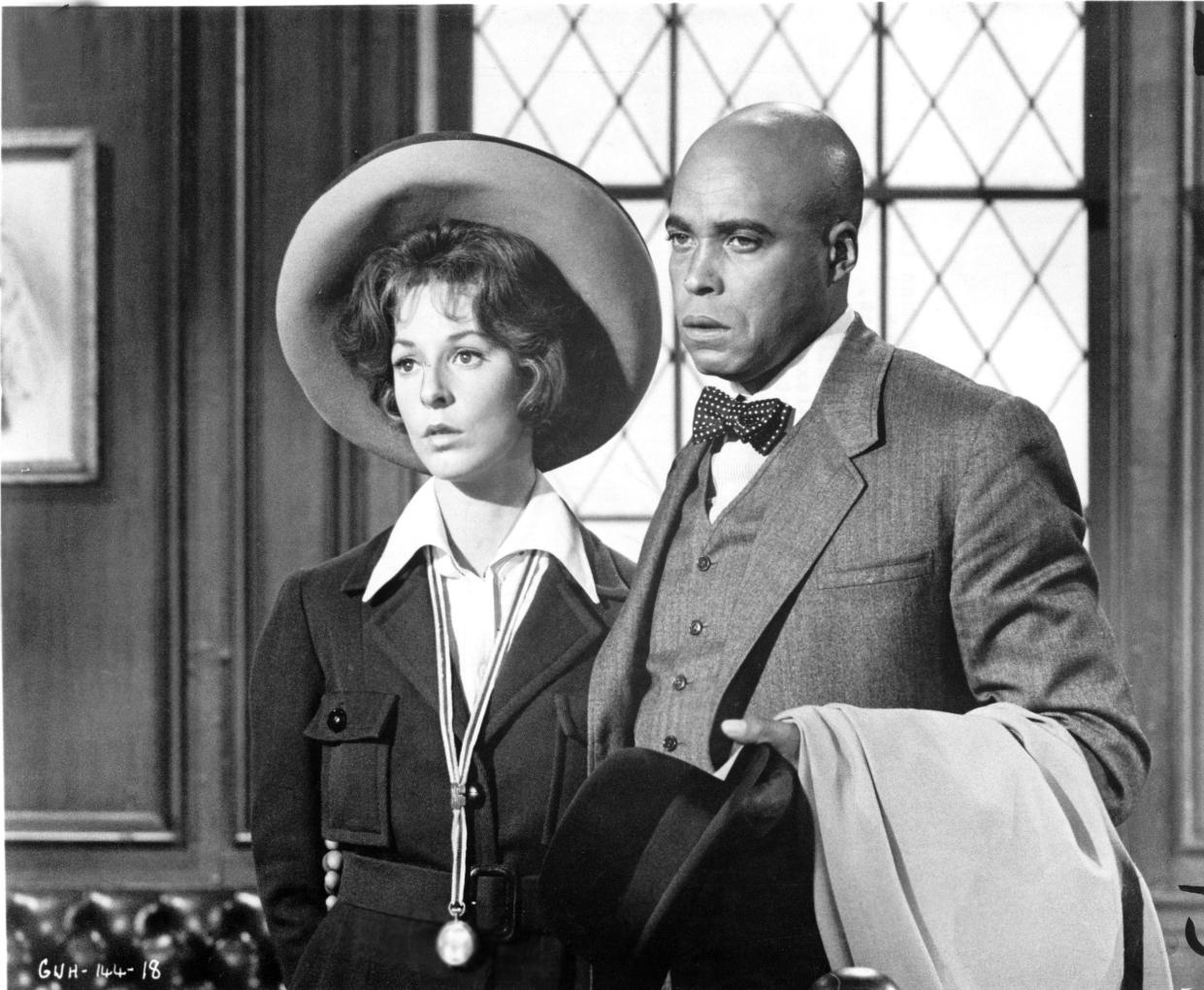
His stature as an actor grew with a fine King Lear in 1973 off Broadway, and an outstanding performance as the kind-hearted accidental killer Lennie in Steinbeck’s Of Mice and Men (Brooks Atkinson, 1974-75).
A 1978 tour of a one-man play about his hero, the actor and civil rights activist Paul Robeson, saw him at odds with leading black activists over his insistence on a warts-and-all portrayal; he was dogged by protesters so vehement that the police gave him an armed bodyguard.
Jones became an increasingly intractable perfectionist. During a long run as Othello opposite Christopher Plummer’s Iago (1981-82), he insisted on the dismissal of his director, Peter Coe.
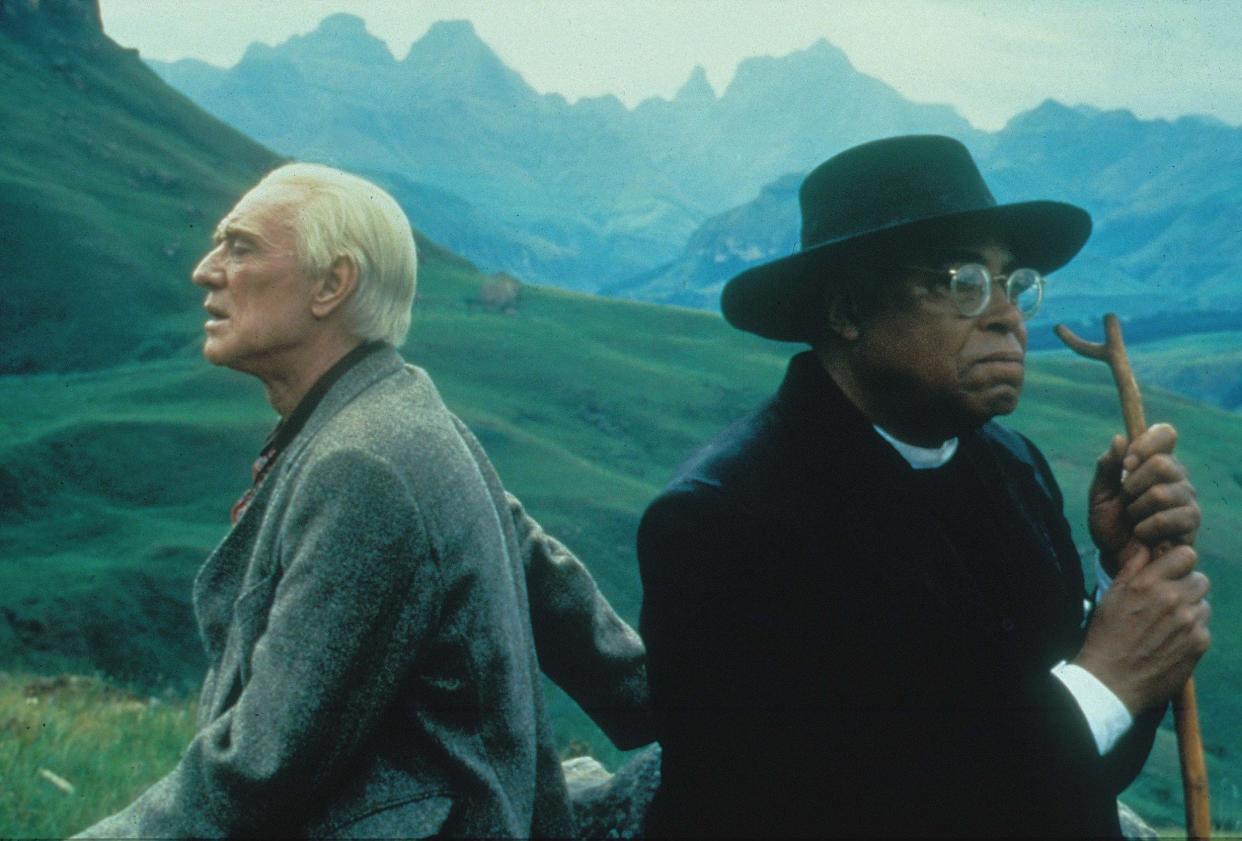
His role as an ex-baseball star reduced to working as a garbage collector in August Wilson’s Fences (1987-88) won him another Tony and was seen as the crowning glory of his stage career, but the run was beset by arguments between star and playwright (Jones rewrote the ending). Thereafter he did no major stage work for nearly 20 years.
Jones made his film debut as Lt Lothar Zogg in Kubrick’s Dr Strangelove (1964). He cared neither for Kubrick nor the film’s “puerile” humour.
He favoured “simple films that tell a simple story” and his favourite roles included America’s first black president in The Man (1972); a garbage man romancing Diahann Carroll in Claudine (1974); a striking coal miner in Matewan (1987); a reclusive novelist based on JD Salinger in Field of Dreams (1989); and Stephen Kumalo in Cry, the Beloved Country (1995). In the 1990s he played the CIA boss Admiral Greer in the Tom Clancy adaptations The Hunt for Red October, Patriot Games and Clear and Present Danger.
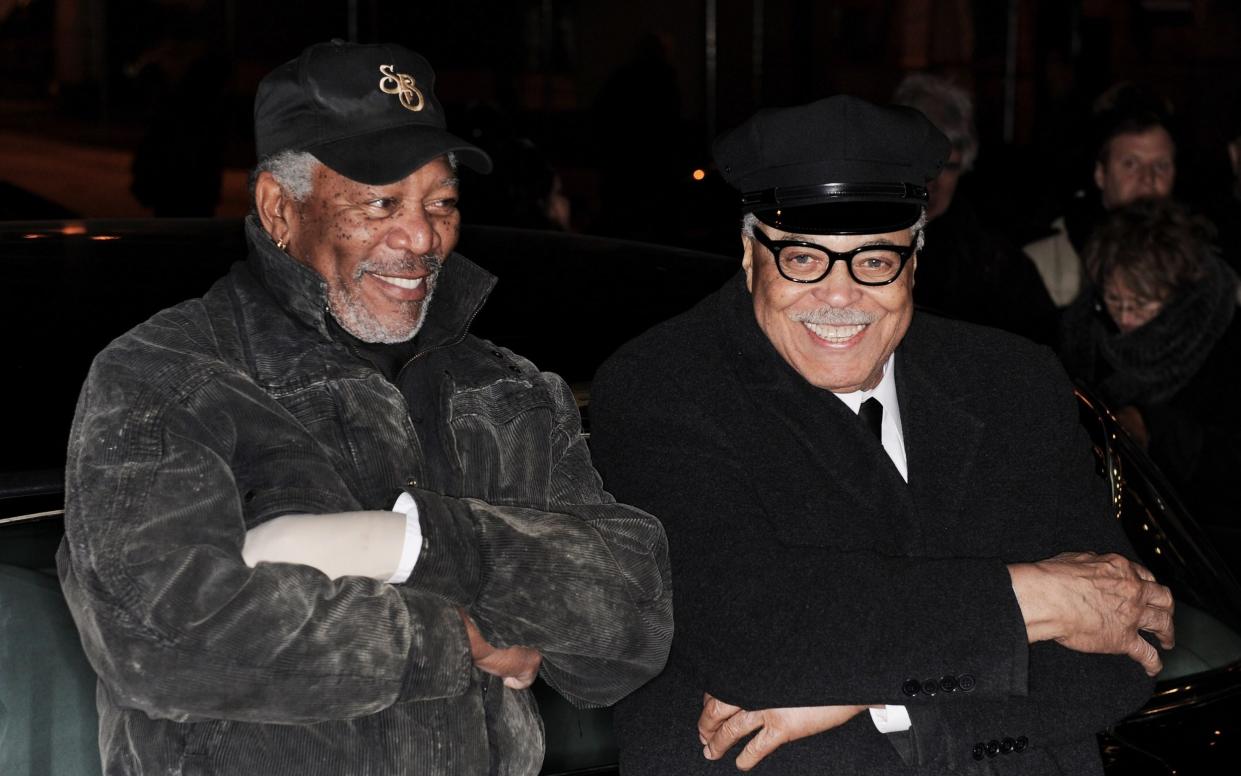
On television he was the first African-American to have a regular role in a soap opera, playing Dr Jerry Turner in As the World Turns in the mid-1960s; whenever he was unavailable Brock Peters would deputise for him, as it was thought the audience would see them as interchangeable. He had fond memories of a 1968 episode of Tarzan in which he played a tribal chief and sang with the Supremes, playing nuns.
He was Alex Haley in Roots: The Next Generations and King Balthazar in Jesus of Nazareth. He turned down the lead roles in Quincy and The Streets of San Francisco to concentrate on his stage work, and although he did later star in his own detective series, Paris (1979), it flopped. He had better luck in the 1990s as a private eye in Gabriel’s Fire, for which he won an Emmy.
An Indian summer in the theatre began with the Henry Fonda role in On Golden Pond (Cort Theatre, 2005) and a titanic performance as Big Daddy in Tennessee Williams’s Cat on a Hot Tin Roof on Broadway and in London (2008-10). His role as the chauffeur opposite Vanessa Redgrave in Driving Miss Daisy (2010-11), again in New York and London, generated real theatrical magic; later he toured Australia in the play alongside Angela Lansbury.
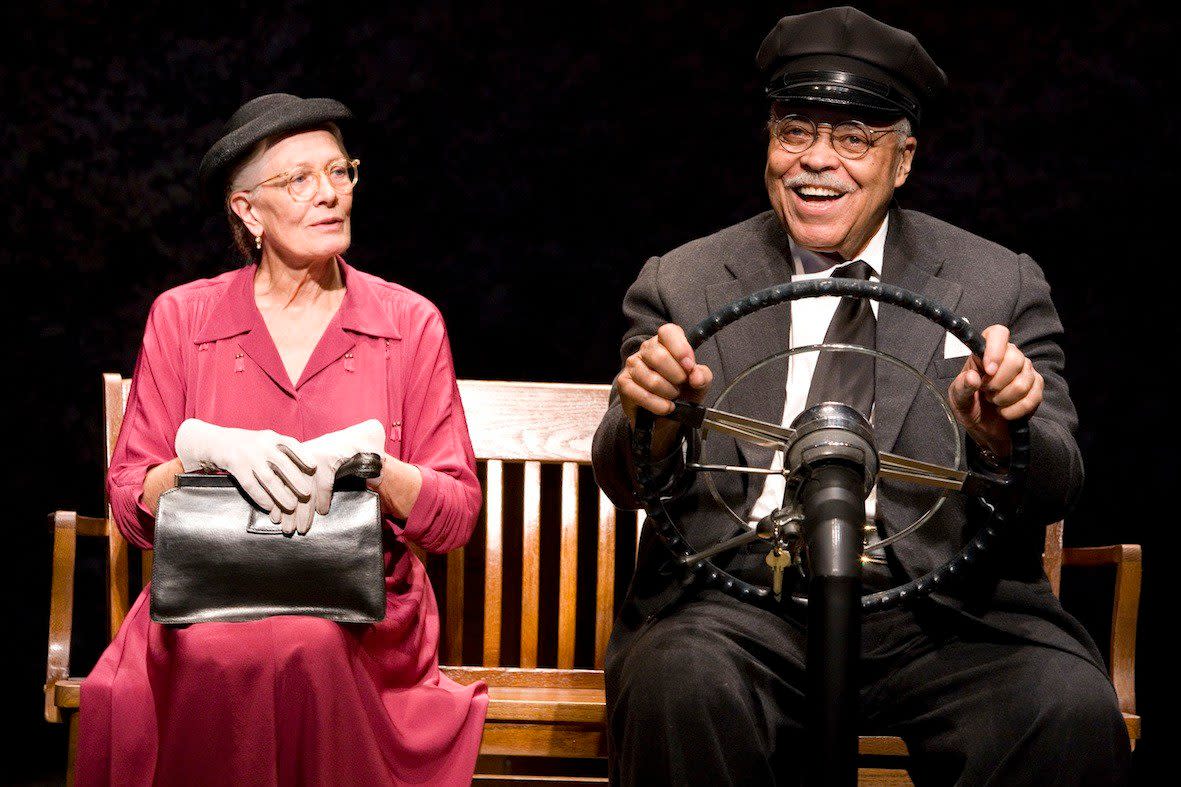
His attempt to recapture his chemistry with Vanessa Redgrave as a superannuated Benedick and Beatrice in Mark Rylance’s production of Much Ado About Nothing (Old Vic, 2013) was a gamble that failed. In 2015 he appeared with Cicely Tyson in The Gin Game on Broadway.
Jones benefited a good deal from the therapy he practised with the “primal scream” pioneer Arthur Janov. The farmhouse he built in rural New York was an indispensable refuge.
He maintained relations with his remaining family in Mississippi, some of whom, he revealed, never quite came to terms with his appearances on film and television. “‘That ain’t you, is it?’ they say hopefully. ‘You ain’t no actor, is you?’”
James Earl Jones was awarded the National Medal of Arts in 1992 and an honorary Oscar for lifetime achievement in 2011.
He married first, in 1968 (dissolved 1972), Julienne Marie and secondly, in 1982, Cecilia Hart. She died in 2016; they had a son, Flynn.
James Earl Jones, born January 17 1931, died September 9 2024


